The HIA4SD project will be successfully been completed in December 2023. If you are interested in organizing a forum, multi-stakeholder dialogue or a training on Health Impact Assessment, please get in touch with the project leader Prof. Dr. Mirko Winkler ().
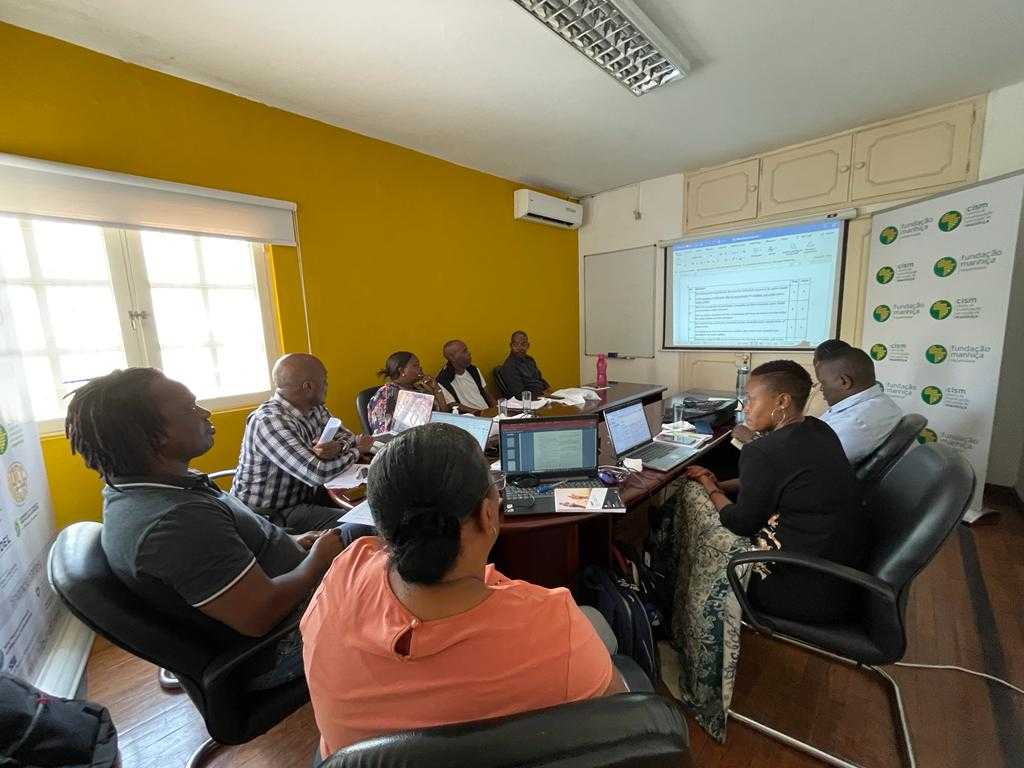
Since its initiation in November 2021, the policy dialogue aimed at enhancing the impact assessment of economic development projects has been an ongoing process in Mozambique. In this context, a Health Impact Assessment (HIA) workshop, co-designed by the Manhica Health Research Centre (CISM) and the Ministry of Health (MISAU) in collaboration with the Ifakara Health Institute (IHI), took place from December 11 to 14, 2023, in Maputo, Mozambique. The primary goal of the workshop was to analyze and map the licensing process for economic development projects. The aim was to identify strategic points for integrating HIA, along with identifying the relevant stakeholders and their respective responsibilities. Participants encompassed representatives from the public sector, including the Ministry of Health, Ministry of Land and Environment, and Ministry of Gender, Children, and Social Action, as well as academia. The workshop discussions led to the recognition of the need for an integrated health, social, and environmental impact assessment. Additionally, the workshop recommended the establishment of a Working Group to advocate for the institutionalization and implementation of HIA and SIA.
The “Centre Suisse de Recherches Scientifiques en Côte d’Ivoire” (CSRS), the Swiss Tropical and Public Health Institute (Swiss TPH) and the “Université Félix Houphouët-Boigny” (UFHB) have co-organised a 3-day HIA course in Abidjan, Côte d’Ivoire. The course took place on 12-14 December 2023 and was attended by 22 participants, representing a dozen different institutions, including the Ministry of Health, Ministry of Environment, the “Agence National de l’Environnement” (ANDE, agency responsible for EIA), private sector (mining and hydropower projects) and academic institutions.
The course’s main objective was to contribute to a solid understanding of the HIA approach, which is fundamental to further promoting the practice of HIA in Côte d’Ivoire. After the participants were thoroughly familiarised with the concept of HIA as an approach to systematically manage and promote the health and safety of project-affected communities, the course ended with identifying actions to be pursued by the institutions represented to promote local HIA practice. The course participants concluded that ANDE can play a key role in strengthening health in EIA. In parallel, CSRS will lead the development of capacity-building mechanisms in the field of HIA in Côte d’Ivoire.
More information on the training is available here.

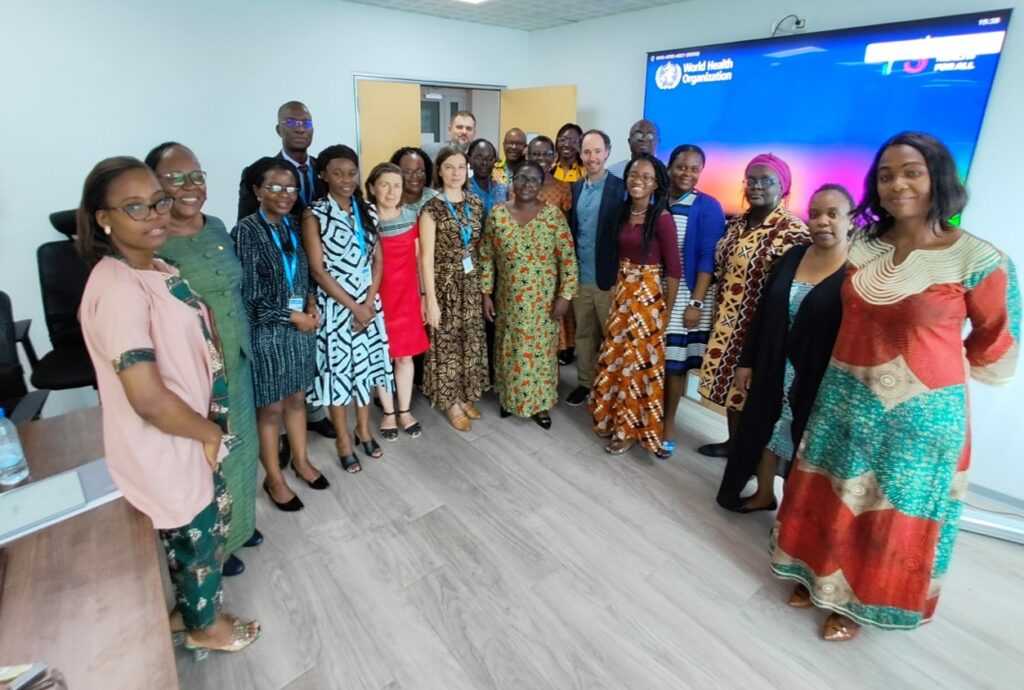
In late November 2023, the HIA4SD project was invited to deliver a 1-day HIA training course to the staff of the Healthier Populations (HP) Cluster of the World Health Organization (WHO) Regional Office (AFRO) in Brazzaville, Republic of the Congo. The interactive training session was attended by approximately 35 participants (20 in person and a dozen online, joining from different WHO regional offices in Africa).
Towards the end of the training, Dr Adelheid Onyango (the Director of HP Cluster) led an enthusiastic discussion with her staff on how WHO AFRO could become active in promoting HIA in the African region. Several specific options tied to the promotion of Universal Health Coverage and Climate Change and Health were identified to be pursued.
A policy dialogue meeting was convened with the Environmental Protection Agency (EPA) in Accra on 30 September 2023.
The objective of the meeting was to communicate key findings of the HIA4SD project and to discuss various policy options to strengthen the consideration of health impacts in current impact assessment practice. The meeting was chaired by EPA’s Deputy Executive Director and attend by 22 participants from different department and units.
During the discussions, the group delved into crucial questions regarding potential policy avenues, the necessary capacities, and methods of collaboration with the Ministry of Health and the Ghana Health Service. Various measures were considered, including the gradual integration of public health considerations into existing EIA regulations or the implementation of a comprehensive Health Impact Assessment (HIA) framework. Another suggestion involved mandating the development of public health management plans, ensuring proactive health considerations in all projects. Additionally, there was an emphasis on establishing a structured system for continuous public health monitoring.
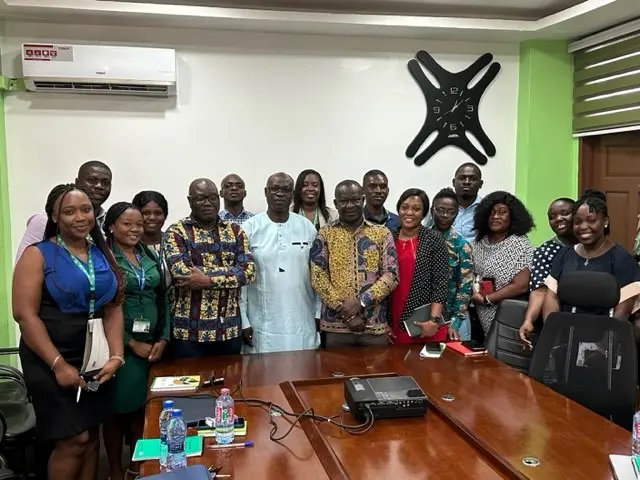
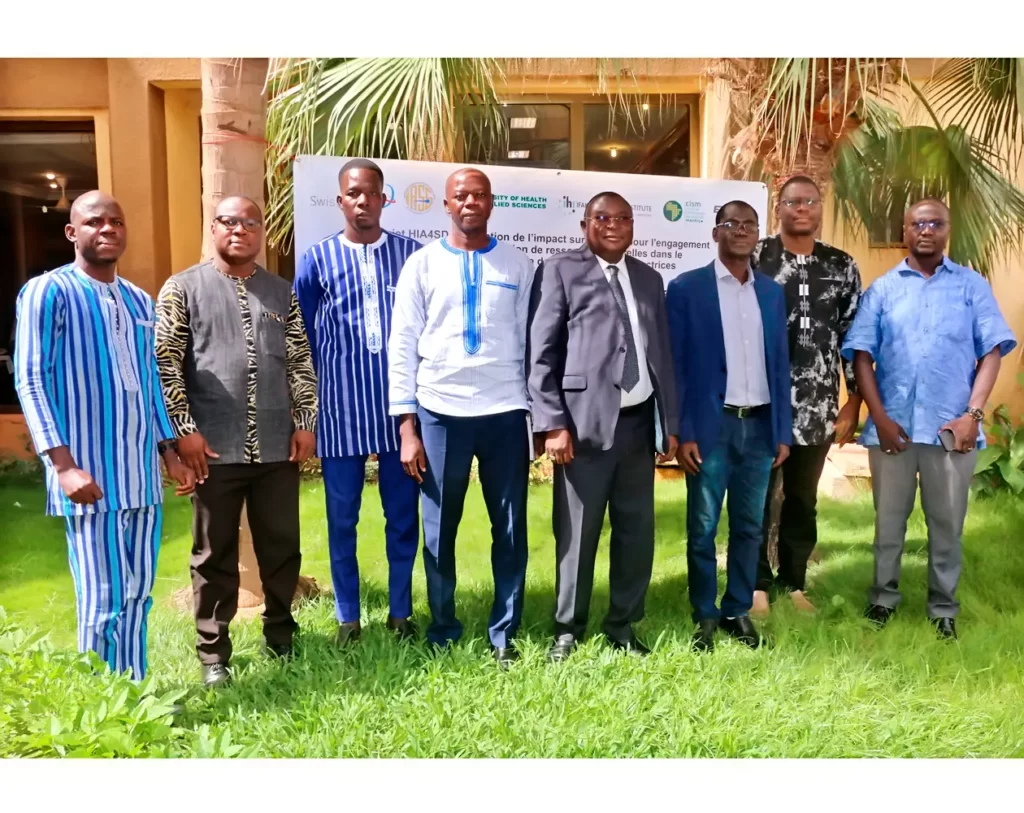
An expert workshop with key institutional stakeholders was held in Ouagadougou on 30 August 2023.
The workshop facilitated exchanges and discussions among professionals in the health and environmental sectors. Participants discussed opportunities for integrating Health Impact Assessment (HIA) into current impact assessment practices. They explored concrete suggestions, encompassing regulatory adjustments, institutional considerations, and capacity-building needs, with the aim of advancing policy development.
It is a wrap! The project team met in Zanzibar to review the last six years and take an outlook…
The synthesis meeting of the HIA4SD project took place in Zanzibar (Tanzania), where the researchers and coordinators involved in the project reflected on the achievements and lessons learned during the implementation of the project over the past 6 years, as well as reflecting on future areas of collaboration.
The project was implemented in four African countries, namely Mozambique, Tanzania, Ghana and Burkina Faso and was coordinated by the Swiss Tropical and Public Health Institute.
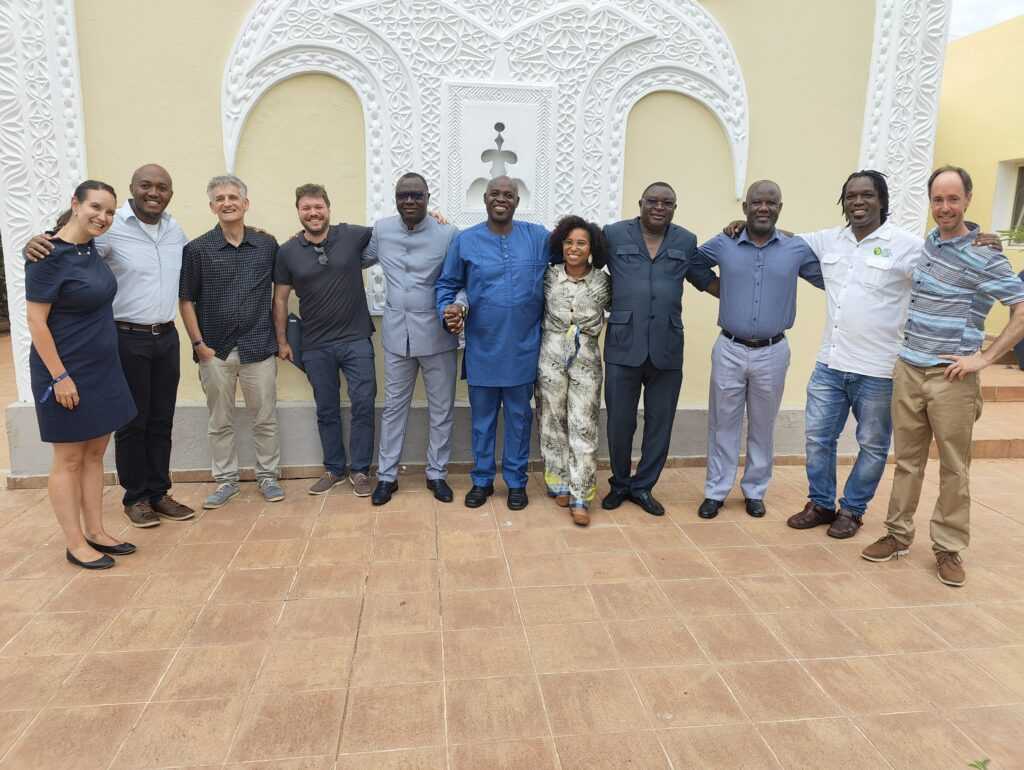
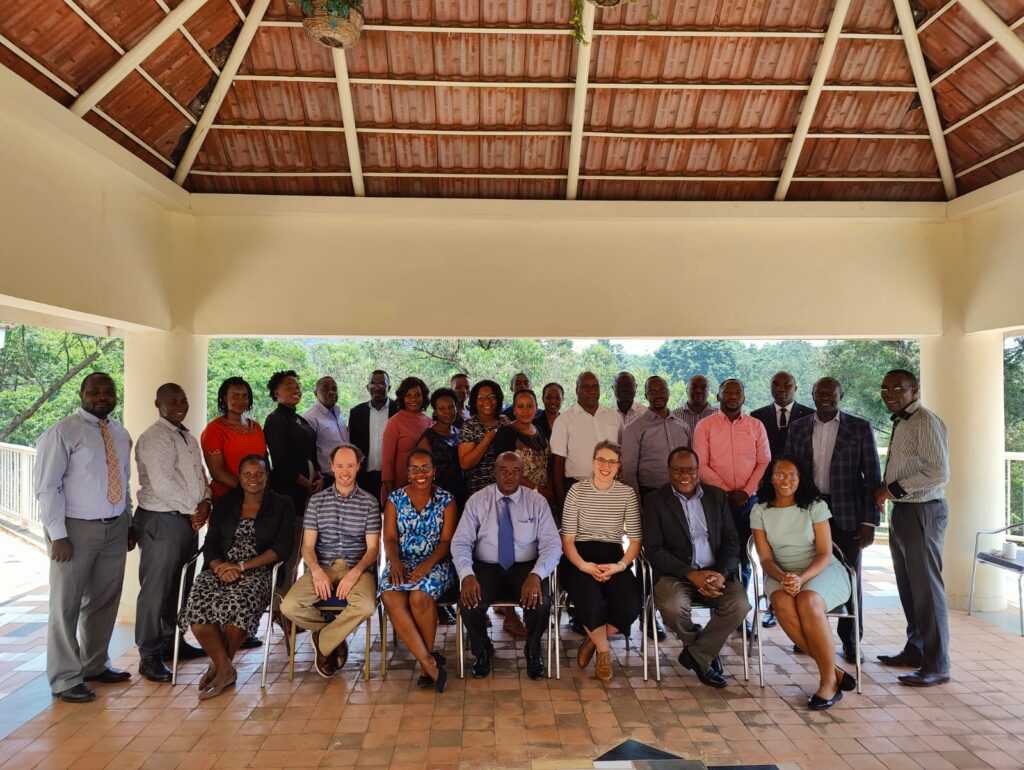
The Makerere University School of Public Health in cooperation with the Swiss Tropical and Public Health institute held a health impact assessment (HIA) short training course between 14 and 16 February 2023 in Kampala, Uganda.
Understanding, assessing and managing community health and safety risks and impacts on areas with large infrastructure projects poses unique challenges for decision makers. Large projects such as mining and construction of large infrastructures can add to local health care demand and create additional risks that need effective mitigation. Such projects may induce adverse community health impact or cause an influx of workers and informal markets that increase health care demand, or, at worst, encourage transmission of infectious diseases. Health impact assessment is a useful tool for assessing how planned projects affect the health of given populations.
During the short course, 24 participants familiarized themselves with the concept of HIA as an approach to systematically manage and promote community health and safety in project-affected communities. The theory was interactively discussed in the context of case studies from Uganda and surrounding countries like Tanzania.
Details about the training can be found in the report here.
The r4d Dialogue Forum aims to discuss how public-private cooperation can be strengthened to mitigate potential adverse health impacts from resource extraction on health determinants, along with the promotion of health benefits in affected communities. The dialogue should be the basis for a possible alignment between different public and private entities and have an impact on constructive deliberations beyond the duration of the event. A main focus will be on public-private partnerships to jointly work towards sustainable development. In practice, there is a lot of untapped potential for actually doing so.
For further information see here.
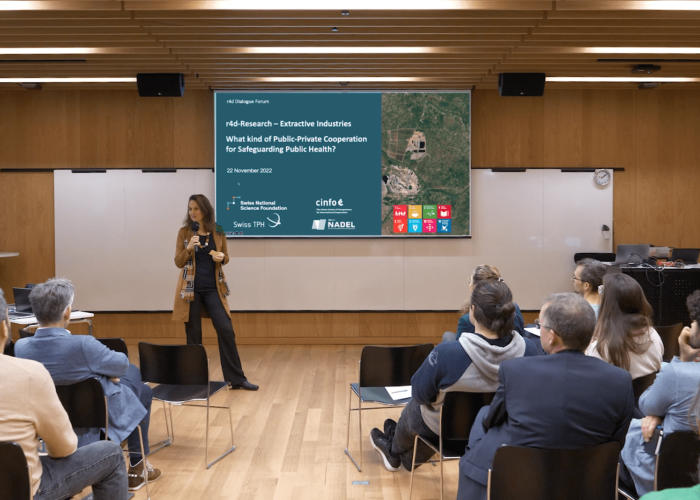
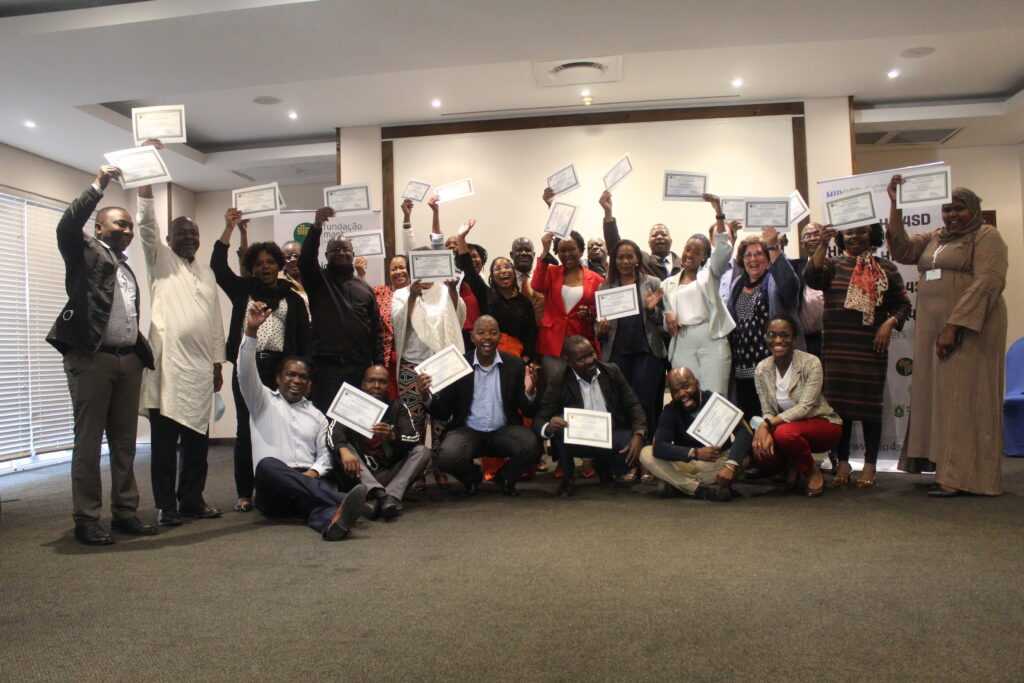
The short course focused on strengthening the integration of Health Impact Assessment in the licensing process and activities of mineral resource extraction projects and was held from August 2-4, 2022. The course, organized by the Manhiça Health Research Centre (CISM) in partnership with the Swiss Tropical and Public Health Institute (Swiss TPH), drew the participation of environmental consultants and technicians from various ministries, including Health (MISAU), Mineral Resources and Energy (MIREME), Gender, Children and Social Protection (MoGCSP), as well as Land and Environment and Rural Development (MITADER).
The course aimed to contribute to a comprehensive understanding of the health impact assessment approach, which is fundamental to advancing its practice in Mozambique. Participants engaged in both theoretical and practical exercises, enabling them to learn how to conduct a Health Impact Assessment, methodically and critically review Environmental Impact Assessment reports, and systematically manage and promote health and safety in the communities affected by projects.
Short course on health impact assessment (HIA) of large infrastructure projects in Uganda (14 – 16 February 2023)
r4d Dialogue Forum in Basel, Switzerland (22 November 2022)
Curso de curta duração sobre avalação de impacto na saúde (AIS) de projectos de grandes infra-estruturas (18 – 21 October 2022, Portuguese)
Short course on health impact assessment (HIA) of large infrastructure projects in Ghana (23 – 25 August 2022)
Curso de curta duração sobre avalação de impacto na saúde (AIS) de projectos de grandes infra-estruturas (2 – 4 August 2022, Portuguese)
Short course on health impact assessment (HIA) of large infrastructure projects in Tanzania (14 – 16 June 2022)
Cours sur l’évaluation de l’impact sur la santé (EIS) au Burkina Faso (30 May – 2 June 2022, French)
Short course on health impact assessment (HIA) of large infrastructure projects in Ghana (2 – 4 May 2022)
Multistakeholder Meeting in Maputo, Mozambique (17 November 2021)
Multistakeholder Meeting in Accra, Ghana (17 August 2021)
Multistakeholder Meeting in Dodoma, Tanzania (12 August 2021)
Multistakeholder Meeting in Ouagadougou, Burkina Faso (30 July 2021)
| Cookie | Duração | Descrição |
|---|---|---|
| cookielawinfo-checkbox-analytics | 11 months | This cookie is set by GDPR Cookie Consent plugin. The cookie is used to store the user consent for the cookies in the category "Analytics". |
| cookielawinfo-checkbox-functional | 11 months | The cookie is set by GDPR cookie consent to record the user consent for the cookies in the category "Functional". |
| cookielawinfo-checkbox-necessary | 11 months | This cookie is set by GDPR Cookie Consent plugin. The cookies is used to store the user consent for the cookies in the category "Necessary". |
| cookielawinfo-checkbox-others | 11 months | This cookie is set by GDPR Cookie Consent plugin. The cookie is used to store the user consent for the cookies in the category "Other. |
| cookielawinfo-checkbox-performance | 11 months | This cookie is set by GDPR Cookie Consent plugin. The cookie is used to store the user consent for the cookies in the category "Performance". |
| viewed_cookie_policy | 11 months | The cookie is set by the GDPR Cookie Consent plugin and is used to store whether or not user has consented to the use of cookies. It does not store any personal data. |